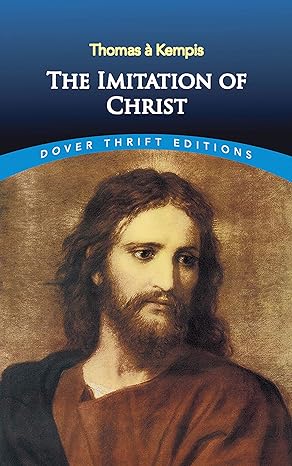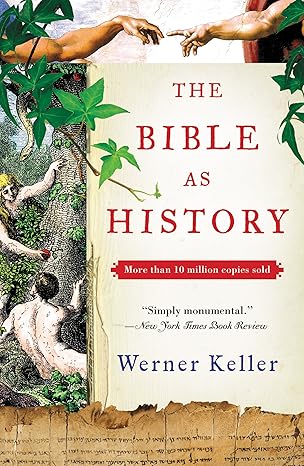
Faith Meets Forensics: An Honest Cold-Case Christianity Book Review
Tuesday, January 1, 2013Picture this: A hardened detective who's spent decades solving cold-case murders—someone who trusts nothing but hard evidence—decides to turn his investigative skills on Christianity. Not to debunk it, but to honestly examine whether it holds up under scrutiny. That's exactly what J. Warner Wallace did, and the result is Cold-Case Christianity, a book that reads like a thrilling detective novel but tackles some of the biggest questions you've probably wrestled with about faith.
I'll be honest—when I first picked up this book, I was skeptical about the whole "detective approach" to Christianity. Would it feel gimmicky? Would it oversimplify the profound mystery of faith? But here's what surprised me: Wallace doesn't treat Christianity like a cold case that needs solving as much as he treats it like truth that deserves the same careful examination we'd give to any matter of life and death. And really, isn't that what it is?
About the Book and J. Warner Wallace
Let me tell you about Jim Wallace (yes, he goes by Jim). This guy spent decades as a cold-case homicide detective in Southern California—the kind of investigator who reopens murder files that have been gathering dust for years and actually solves them. He knows how to separate reliable evidence from junk, how to spot when witnesses are telling the truth, and how to piece together what really happened from fragments of information. Pretty impressive skills, right?
Here's the kicker: Wallace was a committed atheist for most of his career. Not the casual "I haven't really thought about it" kind, but the confident "show me the evidence" kind. When he finally decided to investigate Christianity, he approached it the same way he'd approach a suspicious death—with skepticism, forensic tools, and zero assumptions. Cold-Case Christianity is essentially his case file.
The book walks you through actual investigative techniques Wallace used to crack real murder cases, then applies those same principles to questions about Jesus, the Gospels, and whether Christianity's claims hold water. Each chapter feels like you're sitting across from Jim at a coffee shop while he sketches out case diagrams on napkins, explaining how eyewitness testimony works or why the chain of custody matters for ancient documents just like it does for courtroom evidence. It's the kind of book that makes you think, "Why didn't anyone explain it this way before?"
The Good: Why This Book Resonates
Let's talk about what makes Cold-Case Christianity such a standout read. First off, Wallace writes like a real person, not an ivory tower academic. There's no stuffy theological language or philosophical jargon that makes your eyes glaze over. Instead, he tells you stories—real stories from actual murder investigations—and suddenly you're learning sophisticated principles of evidence evaluation without even realizing it. It's like sneaking vegetables into a kid's favorite meal.
But here's what really got me: Wallace doesn't just tell you what to believe about Christianity. He teaches you how to think about evidence. That's huge. His chapter on eyewitness testimony absolutely revolutionized how I read the Gospels. You know how skeptics love to point out that Matthew, Mark, Luke, and John don't tell identical stories? Wallace shows why that's actually a good thing. When witnesses agree on every tiny detail, detectives get suspicious—it usually means they rehearsed their story or copied from each other. But when they agree on the big stuff while differing on peripheral details? That's the hallmark of genuine, independent eyewitness accounts. Mind. Blown.
The section on the chain of custody for the New Testament documents is equally brilliant. Wallace explains how we track evidence in criminal cases—who touched it, where it's been, whether it could have been tampered with. Then he applies that same standard to the Gospel manuscripts. Spoiler alert: they pass with flying colors. We have better manuscript evidence for the New Testament than for virtually any other ancient document, and Wallace lays out why that matters in terms any jury could understand.
What I love most is how Wallace tackles the tough questions head-on. He doesn't dance around Gospel discrepancies or pretend there aren't legitimate objections to Christianity. Instead, he walks straight into those questions with logic, evidence, and some pretty compelling courtroom analogies. For those of us who've felt intellectually intimidated by skeptical arguments, this book hands you the tools to engage thoughtfully and confidently. And for seekers who worry that becoming a Christian means checking your brain at the church door? Wallace proves that couldn't be further from the truth.
The Not-So-Good: A Few Honest Considerations
Now, I wouldn't be doing you any favors if I pretended this book is perfect for everyone. Let's be real for a minute. If you're not naturally drawn to analytical thinking—if charts, evidence analysis, and methodical logic make your brain hurt—you might find parts of this book a bit dry. It's not a page-turner in the way a John Grisham novel is. Wallace asks you to think, to engage, to follow the evidence trail. That takes effort, kind of like doing a puzzle instead of watching a movie.
Also, if you're looking for something to warm your heart during your morning devotional time, this probably isn't it. Cold-Case Christianity isn't heavy on emotional connection or spiritual inspiration. Wallace's focus is laser-sharp on the evidential foundation of Christianity—proving that the foundation is rock-solid—but he doesn't spend much time exploring what it feels like to build your life on that foundation. Think of it as the concrete basement of your faith house rather than the cozy living room upstairs. Both are essential, but they serve different purposes.
And here's one more thing: While Wallace covers a lot of ground, he can't address every single objection or alternative theory about Christianity. The book is thorough but selective. If you're wrestling with questions about suffering, evil, or why God allows pain, you'll need to look elsewhere. Wallace stays focused on the historical reliability of the Gospels and the evidence for Jesus—and he does that brilliantly—but apologetics is a big field, and no single book can cover everything.
Who Is This Book For?
Wondering if this book is right for you? Here's my take:
- You're a skeptic or seeker who wants to kick the tires on Christianity before committing. You're not interested in emotional appeals or "just have faith" answers—you want evidence, and you want it presented logically.
- You're a believer who feels a bit shaky when skeptical friends challenge your faith. You love Jesus, but you've wondered whether Christianity can really stand up to tough questions. You want tools, not just talking points.
- You're a true crime junkie (no judgment—so am I). If you binge forensic shows or listen to murder mystery podcasts, you'll absolutely love Wallace's case studies. It's apologetics meets Dateline NBC.
- You're in ministry leadership—youth pastor, small group leader, campus minister. You need accessible resources that help your people engage intellectual challenges without needing a seminary degree.
- You're navigating college or a skeptical workplace where people assume Christianity is for the intellectually lazy. You need confidence that faith and reason aren't enemies.
- You're wired for analytical thinking. Give you a good argument, some solid evidence, and a logical framework, and you're happy. Emotional appeals leave you cold, but well-reasoned apologetics light you up.
Final Verdict: A Game-Changer for Faith and Reason
Here's the bottom line: Cold-Case Christianity does something genuinely fresh in the apologetics world. It treats the evidence for Jesus with the same seriousness and rigor that detectives bring to murder investigations—and guess what? Christianity holds up beautifully under that scrutiny.
What makes Wallace especially credible is his backstory. This isn't some pastor defending his paycheck or lifelong Christian cherry-picking evidence. This is a former atheist detective who had every reason to dismiss Christianity but couldn't ignore the evidence once he honestly examined it. That story resonates with skeptics in a way that traditional apologetics often doesn't.
Whether you're questioning Christianity, defending it to others, or simply curious about whether ancient religious claims can survive modern investigative techniques, this book delivers. Wallace proves—convincingly, I might add—that faith and reason are allies, not enemies, in the pursuit of truth. Christianity doesn't require you to commit intellectual suicide. It invites investigation, welcomes questions, and stands firm under scrutiny.
If you've ever wished someone would just lay out the case for Christianity the way a prosecutor presents evidence to a jury—clearly, logically, compellingly—this is that book. I can't recommend Cold-Case Christianity highly enough. It's one of those rare apologetics resources that's both intellectually rigorous and genuinely practical. Whether you're a skeptic, a seeker, or a believer looking to strengthen your foundation, Wallace has built a case worth examining.
More Books
Comments



